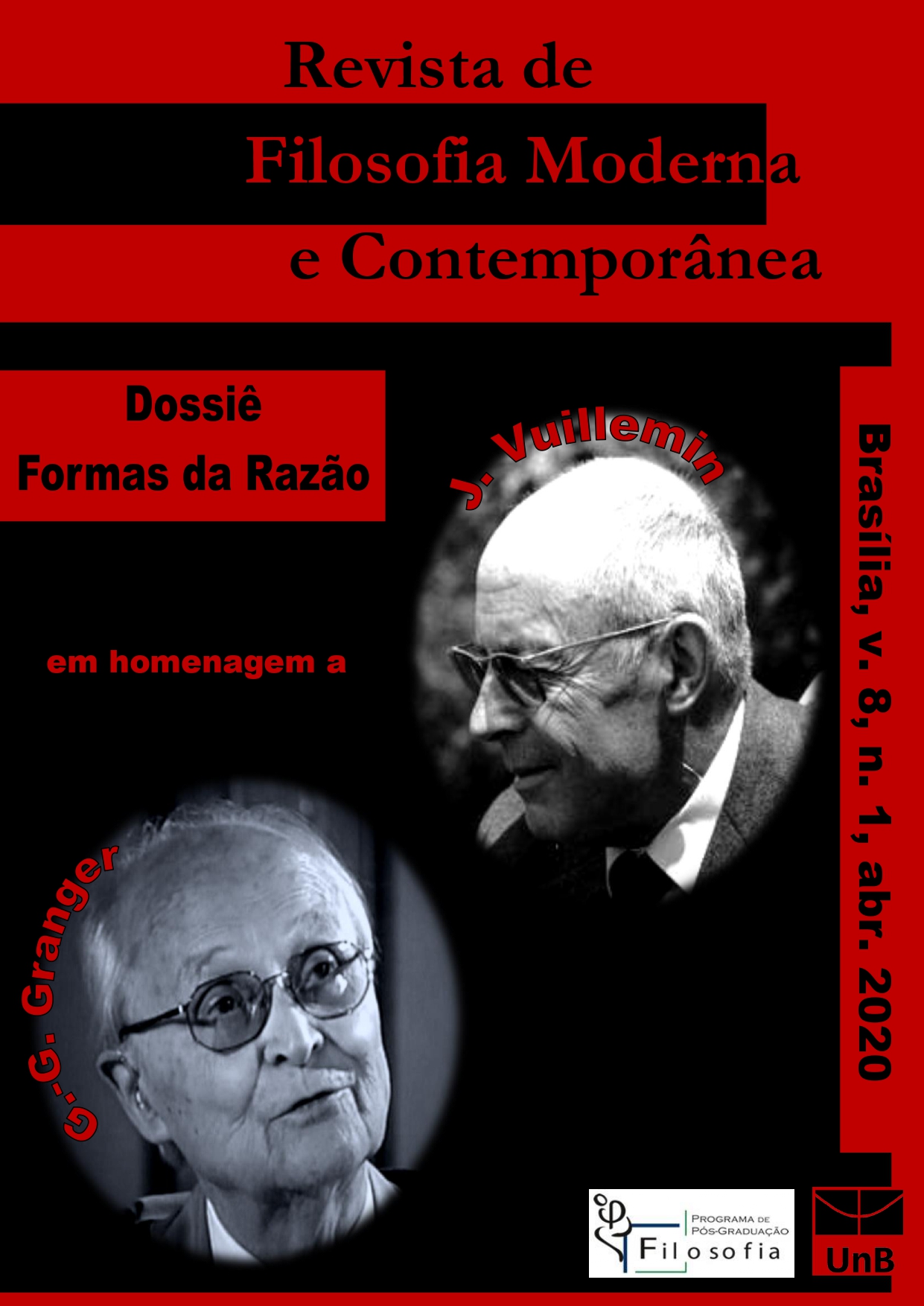Memory
Basic Ontology and Epistemology
DOI:
https://doi.org/10.26512/rfmc.v8i1.28340Keywords:
memory, episodic memory, generativismAbstract
The present work extract an epistemological consequence of an ontological position about the memory. The ontological position is obtained on the basis of the analysis of the ordinary uses of the term memory in order to infer what should be the legitimate use, concluding, in congruence with Klein, that all memory is episodic. Given such an ontological position, a generativism epistemic position is derived, concluding that memory is a basic source of knowledge analog of the perception.
Downloads
References
AUDI, R. “The sources of knowledge”. In: MOSER, P. (Ed.). Oxford Handbook of Epistemology. Oxford: Oxford University Press, 2002, p. 71-94.
BERNECKER, S; MICHAELIAN, K. (Eds.). The Routledge Handbook of Philosophy of Memory. London: Routledge, 2017.
DESCARTES, R. “As paixões da alma”. In: DESCARTES, R. Descartes: Os pensadores. 5ª Ed. Tradução de J. Guinsburg e Bento Prado Júnior. São Paulo: Nova Cultural, 1991.
FERNÁNDEZ, J. “Epistemic generation in memory”. Philosophy and Phenomenological Research, v.92, n.3, p. 620”“644, 2016.
KLEIN, S. B. “What Memory Is”. Wiley Interdisciplinary Reviews: Cognitive Science, v.6, n.1, p. 1”“38, 2015.
LACKEY, J. “Why memory really is a generative epistemic source: A reply to Senor”. Philosophy and Phenomenological Research, v. 74, p. 209”“19, 2007.
MAHR, J. B.; CSIBRA, G. “Why Do We Remember? The Communicative Function of Episodic Memory”. Behavioral and Brain Sciences, v.41, n.1, jan, 2018.
MARTIN, C.B; DEUTSCHER, M. “Remembering”. Philosophical Review, v. 75, p. 161”“96, 1996.
MICHAELIAN, K; ROBINS, S. K. “Beyond the Causal Theory? Fifty Years after Martin and Deutscher”. In: MICHAELIAN, K; DEBUS, D; PERRIN, D. (Eds.). New Directions in the Philosophy of Memory. London: Routledge. 2018.
McGRATH. “Memory and Epistemic Conservatism”. Synthese, v.157, p. 1-24, 2007.
NICOLELIS, M. Muito além do nosso eu: a nova neurociência que une cérebros e máquinas ”“ e como ela pode mudar nossas vidas. Tradução do autor. São Paulo: Companhia das Letras, 2011.
ROBINS, S. “Misremembering”. Philosophical Psychology, v.29, 2016.
SANT'ANNA, A; MICHAELIAN, K. “Thinkin about Events: A Pragmatist Account of the Objects of Episodic Hypothetical Thought”. Review of Philosophy and Psychology, Fev, 2018.
SCHWITZGEBEL, E. “Introspection”. In: ZALTA, E. N. (Ed.). The Standford Encyclopedia of Philosophy. Winter, 2016. Disponível em: [https://plato.stanford.edu/archives/win2016/entries/introspection/]: acessado [24/11/2019].
SKOTKO, B. G. et al. “H.M.'s personal crosswords puzzles: understanding memory and language”. Memory, v.16, n.2, p. 89-96, 2008.
SQUIRE, L. R. “The Legacy of Patient H.M. to Neuroscience”. Neuron, v.61, n.1, p. 6-9, 2009.
SQUIRES, R. “Memory Unchained”. The Philosophical Review, v.78, p. 178-96, 1969.
TULVING, E. “Episodic Memory: From Mind to Brain”. Annual Review of Psychology, v.53, p. 1-25, 2002.
Downloads
Published
How to Cite
Issue
Section
License
Copyright (c) 2020 Journal of Modern and Contemporary Philosophy

This work is licensed under a Creative Commons Attribution-NonCommercial-NoDerivatives 4.0 International License.
Copyright for articles published in this journal is retained by the authors, with first publication rights granted to the journal. By virtue of their appearance in this open access journal, articles are free to use, with proper attribution, in educational and other non-commercial settings.


